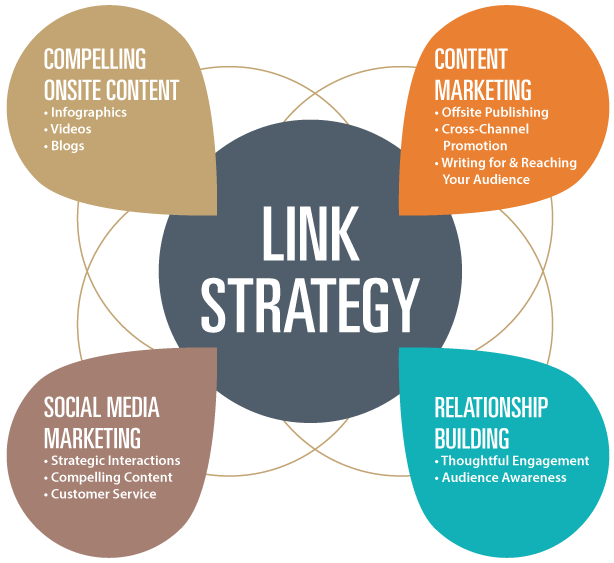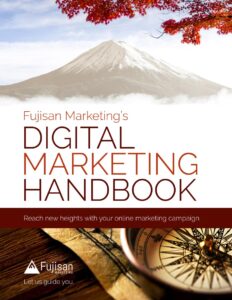If you get called in for an interview at your dream company, you may decide to ask a current employee for a referral. If this employee is highly esteemed at that company, their reference will weigh heavily, if they’re not, their reference may actually hurt your chances. On the same note, if the same employee vouches for you, you get the job, and you turn out to be a trustworthy, quality employee, that will reflect positively on both of you.
For a website, links act similarly as references. If the link is bad, it will reflect poorly on the website; if the link is good, it will reflect positively on the website. Links that connect two quality websites will elevate them both, while broken, or irrelevant links can do the opposite. Just as mutual good references benefit you in the professional world, quality links do the same in the Internet world. Of course, links, and how they affect websites, are much more complicated than a simple good or bad reference, but for the sake of a beginner’s guide, this analogy is a good place to start.
To understand the importance of link building, you must first understand the basics of SEO.
SEO
SEO refers to search engine optimization. The goal of search engines is to show Internet users the most relevant, up to date, quality content in response to their search query. There are millions of websites on the Internet, making it impossible to analyze each website independently; so, search engines use a highly complex algorithm by which to measure the value of each webpage. The websites are then ranked on a search engine according to their perceived quality. They take into account hundreds of factors, including site popularity, length and quality of copy on the site, site hierarchy, keywords, and hyperlinks. Websites with the best SEO scores are ranked highest. Hyperlinks are highlighted words in a text that, when clicked, take you to another webpage, either on the same website or on a different one. They act as bridges between related information and are weighed heavily when determining the quality of a website.
What Is Link Building?

Moz describes links as the “streets between pages.” The more relevant your website, the more streets will lead to it. Trustworthy, quality sites tend to reference other trustworthy, quality sites via links. It’s for this reason that building good links on your website and to your website can be one of the most impactful ways to improve SEO.
A good hyperlink is one that stands out in the surrounding text, directs to a page directly associated with the link text, and adds value to the text. It should support and reinforce the message of the blog, and should effectively link between two quality websites.
Link building is when you get other websites to link to your own in order to improve SEO. There are many types of links and techniques for link building. Overall, the link building process can be time-consuming and tedious; if you put in the time to successfully link build, it will be a huge advantage to your website. 
As the image depicts, you can develop your link building strategy through a variety of channels.
- Creating compelling onsite content
- Content Marketing
- Social Media Marketing
- Relationship Building
We’ll specifically dive deeper into how creating content, content marketing, social media marketing, and relationship building can interact to help develop a strong link building strategy.
Types Of Links
Self-Created, Non-Editorial Links
These are links that occur in the comment section of blogs when people who comment on your webpage link to other webpages. These are often referred to as ‘spam comments’ because they contain worthless information and unrelated links. Self-created, non-editorial links also occur in press releases with optimized text. This type of black hat technique is also referred to as ‘keyword stuffing’, or overusing the same keywords throughout the text to monopolize a keyword search.
This type of link is highly discouraged. If you manage a website, it’s important to not leave your comment section unattended and to make sure that you’re vetting every link for quality and relevance to your industry. Focus on tactics that will allow you to naturally link to quality information, and if something feels unethical, don’t do it. SEO algorithms are smart and will penalize websites that appear to be cheating the system. For more on black hat SEO techniques, read 8 Risky Black Hat SEO Techniques Used Today.
Natural Links
Natural links are the links that happen organically between websites. Natural links are established when website owners or bloggers link to your content because it supports the purpose of their website. This is the most coveted link type because it’s one you don’t have to ask for; it requires no interaction or effort on your part, and it shows that you’re providing a service (or content) to others that they find valuable. The first word in this section was a natural link because it links to a blog by Moz that describes in great detail what makes a link a natural link (see what we did there?).
Natural links occur when you’re creating relevant, quality content that fills a need. You can increase your chances of getting natural links by creating high-quality content, and mentioning influencers or hot topics in your industry to earn attention.
Manual/Outreach Links

Manual links, or outreach links, are when a link is preceded by outreach to another website owner. This type of link requires you to manually contact website owners and ask them to link to you. You may choose to build manual links because you’re not yet known in your industry, or you’ve just launched a website. Manual links take effort to build but can offer a lot of value. This type of linking can eventually result in referrals, relationship building, and a network of mutual links.
Link Building Best Practices
It’s important to keep in mind (and educate those around you) that link building takes time, and nothing happens overnight. When link building is done well, it can be a beneficial, long-term asset. The following steps are best in-house practices to gradually boost your link building:
Step 1. Create Quality Content
Remember, the best links are earned links. You want people to want to link to you, either naturally or without much convincing. Don’t start a link building campaign until you have something of value to offer. The first step to inspiring natural links is to create quality content that fills a need in your industry. Create quality content before driving traffic to it.
Before creating content or beginning a link building campaign, ask yourself what your angle is:
- What do people care about?
- What need can I fill?
- How can I stand out?
Then, decide your voice. Make sure it accurately represents the voice of your company. So, what’s your hook? Are you funny, informative, or controversial? Looking at complimentary and competitive industries can help you get an idea about what others are doing by way of creating content for your industry.
If you’ve been in your industry for a while, it may be easy to come up with some ideas just by brainstorming and asking yourself these questions. You can also use real data, or tools like Rival IQ, to help you find out what people in your industry are searching for. Once you know what people care about, you can begin creating unique content.
Step 2: Get To Know Your Audience
When you create quality content, it’s usually not difficult to guess who will be interested in it. Ask yourself, “what type of person or group of people will care about this?” If you’ve done your content creation homework, the people that will care about your content are the target audience for your website.
Step 3: Research And Reach Out
Research:
Once you’ve identified your target audience, begin searching and researching the ones that you think will be most interested in your content. Look for influencers in your industry, and do your best to get influential people to share and/or link to your content. When researching, consider the following factors:
- Do they have an active blog or website?
- Do they typically share external content, or do they have guest bloggers?
- Is their industry relevant to my content?
- Do we share an audience?
- How big is their social media audience?
These are the factors that should weigh on your decision about who you should put your energy into contacting. Once you’ve created a manageable list for yourself, collect their contact information from their website.
Reach out:

Once you’ve created quality content, built a list of contacts, and are ready to reach out, follow these guidelines:
- Utilize your research. You don’t have to do an extensive background check, but if you read their website and reference their work in your email, it will show them that you’ve invested time in getting to know who they are, and it will make you stand out from the email spammers.
- Tell them why they should care about you—What makes your content unique? Have they written complimentary posts? If so, mention these.
- Ask them to take action. Make it clear what action you want them to take. Ask them to:
- Share your content on social media.
- Let you write a guest blog post for them (that you can link back to your site).
- Do a content trade. If they write great content, offer to write a blog for them, and post their work on your site, in exchange.
- Write an opinion piece about one of your controversial blogs.
- Reinforce the value that your ask will provide to their audience.
The image to below shows additional methods for building relationships and link building in meaningful ways.
What Types Of Links Are Beneficial?
While SEO algorithms are highly complex and secretive, there are a few types of links that will help you score well.
To get the most out of link building, aim for the following:
- Links to your homepage.
- Links to one of your secondary pages—this can be a product, category, or virtually anything on your secondary navigation.
- Links that contain your company name.
- Links that contain your target keywords.
When you know what types of links are important to SEO, it’ll help you optimize your website for link building by creating custom URLs for your linkable pages. If you’re curious how your website scores currently, you can do an analysis here:
As you look at your current results, ask yourself:
- Is my website ranking for my target keywords?
- Are the most important pages of my website being linked?
If your website is falling short, you’ll be able to plainly see your opportunities for improvement and move forward in light of that.
Benefits Of Link Building
There are several benefits to link building, other than just its effect on site SEO.
Relationships
One of the most long-term benefits of link building is that it gives you the opportunity to build relationships with people who manage other relevant websites in your industry. This can lead to a mutually beneficial relationship, including cross-promotion opportunities, and growth opportunities for both businesses.
Referral Traffic
Another benefit of link building is referral traffic. To reap the benefits of referral traffic, it’s important to be linking to quality websites with relevant information in industries that compliment yours. With any link, ask yourself if it will add value to your audience and if you will add value to theirs. Always link to sites that have audiences that will broaden your industry reach, not narrow it. When you do this, you can reap the benefits of quality, relevant, referral traffic.
This guide just skimmed the surface of link building. Link building can be an involved, tedious process that takes time, energy, and resources. But when link building is done right, it can increase traffic to your website, build a stronger community, broaden your website reach and company influence, and move your industry forward.
If you’re interested in learning about how Fujisan Marketing can help improve your site SEO and increase traffic to your website, click here for a free consultation.




